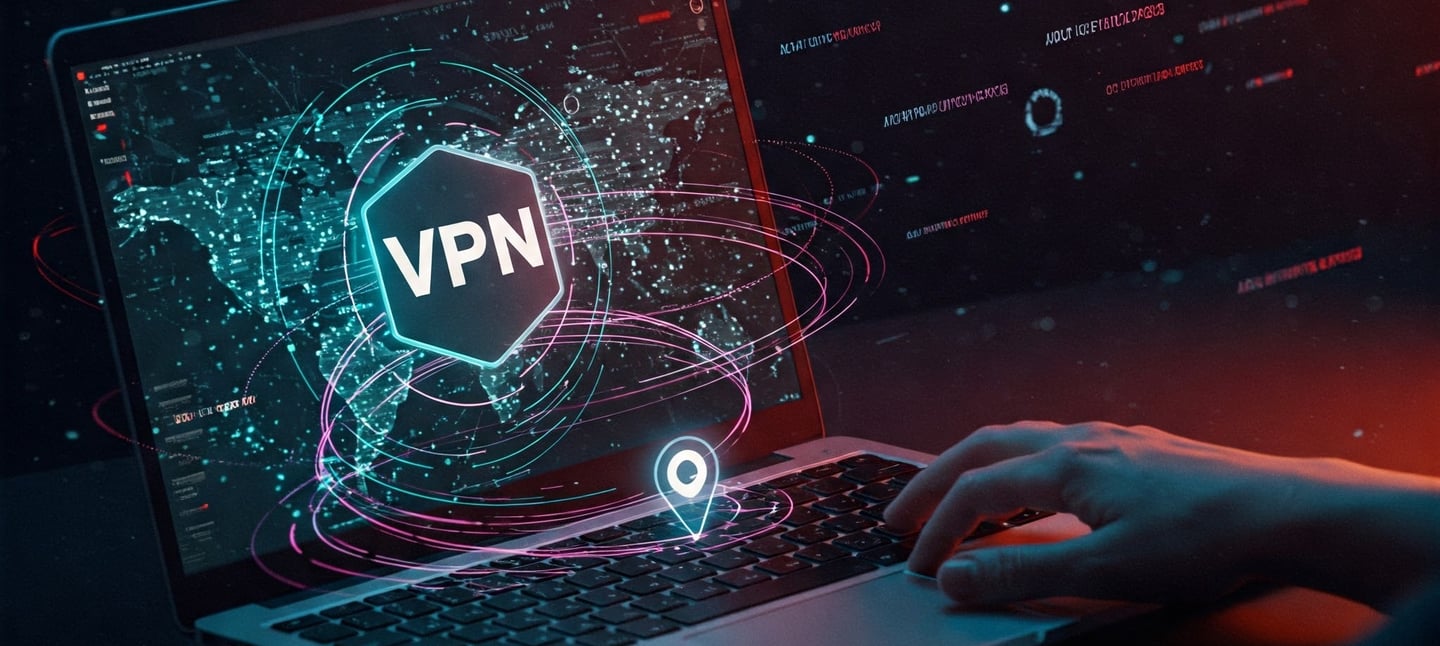Is a VPN Really Secure? Exploring the Best Alternatives in 2025?
"Are VPNs really secure? Discover the truth about VPN safety, common vulnerabilities, and the best alternatives like Tor, proxies, and Zero Trust Networks for ultimate privacy in 2025."
APP DEVELOPINGIT SOLUTIONSSOFTWARE DEVELOPEWEBSITE DEVELOPINGDATA SCIENCEARTIFICIAL INTELLIGENCE
Dr. Prashant Singh
4/6/20253 min read


Is a VPN Really Secure? Exploring the Best Alternatives in 2025?
Intro-
In an era of increasing cyber threats, online surveillance, and geo-restrictions, Virtual Private Networks (VPNs) have become a go-to solution for privacy-conscious users. But are VPNs truly secure? While they offer encryption and anonymity, they are not foolproof. Some VPNs may log your data, suffer leaks, or even be compromised by hackers.
This article explores:
How secure VPNs really are
Common VPN vulnerabilities
Best VPN alternatives for enhanced privacy
When to use a VPN vs. other tools
By the end, you’ll have a clear understanding of whether a VPN is the right choice for your needs—or if you should consider other privacy solutions.
1. How Secure Are VPNs?
VPNs work by encrypting your internet traffic and routing it through a remote server, masking your IP address and location. However, their security depends on several factors:
A. Encryption & Protocols
Most reputable VPNs use strong encryption like AES-256, which is virtually unbreakable. The security also depends on the protocol:
OpenVPN – Highly secure and open-source.
WireGuard – Faster and more efficient than OpenVPN.
IKEv2/IPSec – Good for mobile devices (auto-reconnects if the connection drops).
L2TP/IPSec – Older but still secure.
PPTP – Outdated and insecure (avoid).
✅ Strong encryption makes VPNs secure against eavesdroppers.
B. No-Log Policies
A VPN provider can see your traffic if they keep logs. Some VPNs claim "no logs" but may still track:
Connection timestamps
Bandwidth usage
IP addresses
🚨 Avoid free VPNs (like Hola VPN) as they often sell user data.
C. DNS & IP Leaks
Even with a VPN, your real IP or DNS requests can leak due to:
WebRTC leaks (common in browsers like Chrome & Firefox).
IPv6 leaks (if the VPN doesn’t support IPv6).
DNS leaks (if your ISP’s DNS is used instead of the VPN’s).
✅ Use a VPN with built-in leak protection.
D. Jurisdiction & Government Surveillance
VPNs based in Five Eyes, Nine Eyes, or 14 Eyes countries (US, UK, Australia, etc.) may be forced to hand over user data.
✅ Choose VPNs in privacy-friendly jurisdictions (Switzerland, Panama, British Virgin Islands).
E. Malware & Fake VPNs
Some free VPNs contain malware or act as spyware. Always download VPNs from official sources.
🔹 Conclusion: A VPN is secure if you choose a reputable provider with strong encryption, a no-logs policy, and leak protection. However, it’s not 100% foolproof.
2. Common VPN Vulnerabilities
Despite their benefits, VPNs have weaknesses:
A. VPNs Can Be Blocked
Some countries (China, Iran, Russia) block VPN traffic using Deep Packet Inspection (DPI).
✅ Solution: Use obfuscated servers (like NordVPN’s "Obfuscated Servers" or ExpressVPN’s "Stealth Mode").
B. VPNs Don’t Protect Against All Threats
Malware & phishing – A VPN won’t stop you from downloading malicious files.
Tracking cookies – Websites can still track you via cookies.
Browser fingerprinting – Your device details can still identify you.
✅ Combine VPNs with anti-virus, ad-blockers, and privacy browsers.
C. VPNs Can Slow Down Your Connection
Encryption adds overhead, reducing speed. Free VPNs are especially slow due to overcrowded servers.
✅ Use WireGuard-based VPNs (like Mullvad or ProtonVPN) for faster speeds.
D. Trust in the VPN Provider
If the VPN provider is hacked (like SuperVPN in 2022), your data could be exposed.
✅ Use open-source VPNs (ProtonVPN, Mullvad) for transparency.
3. Best VPN Alternatives for Privacy & Security
If VPNs aren’t the right fit, consider these alternatives:
A. Tor (The Onion Router)
✅ Pros:
Free and decentralized.
Routes traffic through multiple nodes, making tracking extremely difficult.
Ideal for whistleblowers and journalists.
❌ Cons:
Very slow (due to multiple encryption layers).
Some websites block Tor users.
Exit nodes can be malicious.
🔹 Best for: Maximum anonymity (but not for streaming or torrenting).
B. Proxy Servers
✅ Pros:
Faster than VPNs (no encryption overhead).
Good for bypassing geo-blocks (e.g., watching Netflix).
❌ Cons:
No encryption (your ISP can see traffic).
Free proxies may log and sell data.
🔹 Best for: Quick IP masking (but not for sensitive activities).
C. Secure DNS (DoH & DoT)
DNS-over-HTTPS (DoH) & DNS-over-TLS (DoT) encrypt DNS queries.
Prevents ISPs from tracking your browsing history.
🔹 Best for: Privacy without full VPN encryption.
D. Zero Trust Networks (ZTNA)
Used by businesses to restrict access without traditional VPNs.
Example: Cloudflare Access, Tailscale.
🔹 Best for: Enterprise security.
E. Decentralized VPNs (dVPNs)
Examples: Orchid, Sentinel, Mysterium.
Uses blockchain to create a peer-to-peer VPN network.
✅ Pros: No central authority controls your data.
❌ Cons: Still experimental, slower speeds.
4. When Should You Use a VPN vs. Alternatives?
Use CaseBest ToolWhy?General privacyVPN (ProtonVPN, Mullvad)Strong encryption, no logs.Maximum anonymityTorMulti-layered encryption.Bypassing geo-blocksSmart DNS or ProxyFaster than VPN for streaming.Business securityZero Trust NetworkMore secure than traditional VPNs.Avoiding ISP trackingSecure DNS (DoH/DoT)Encrypts DNS queries.
5. Final Verdict: Are VPNs Secure?
✅ Yes, if you choose a trustworthy provider (ExpressVPN, NordVPN, ProtonVPN).
❌ No, if you use a free or shady VPN.
Best VPN Alternatives:
For anonymity: Tor
For streaming: Smart DNS
For business security: Zero Trust Networks
For decentralized privacy: dVPNs
Final Recommendation:
Use a premium VPN for daily privacy.
Combine with Tor for maximum anonymity.
Avoid free VPNs at all costs.
By understanding VPN limitations and exploring alternatives, you can make an informed choice about your online security.
Call to Action
🔒 Need a secure VPN? Try NordVPN or ProtonVPN.
🌐 For maximum privacy, use Tor Browser.
Would you like recommendations based on your specific needs? Let me know in the comments!
